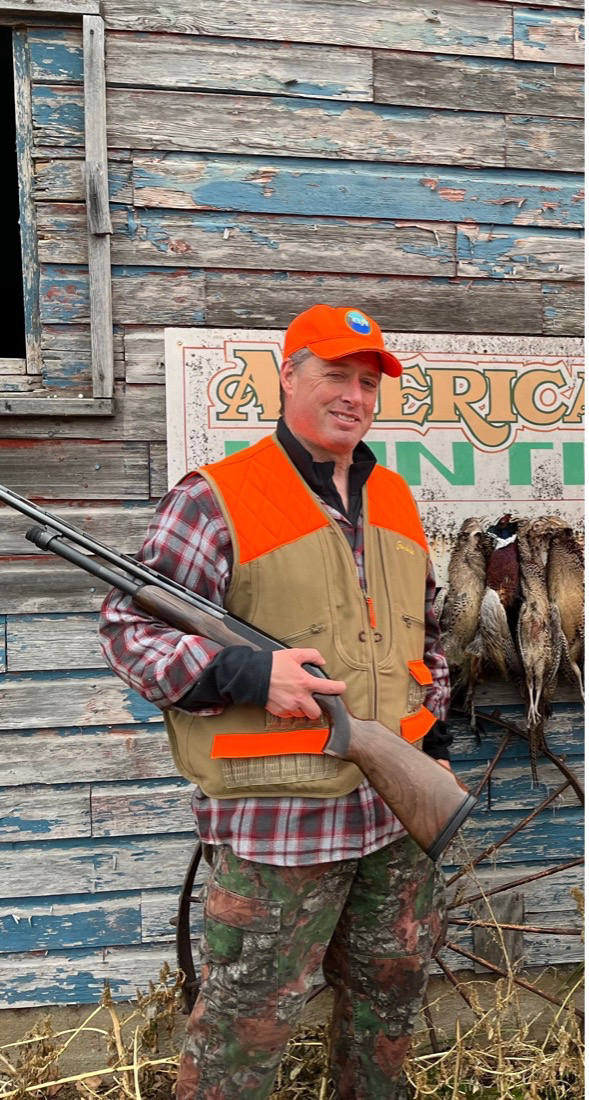By Paul Kugelman, Jr., Legal Compliance Officer - Virginia Department of Wildlife Resources
I think a little bit about my background may lend some credence to what I have to say. Before coming to the Virginia Department of Wildlife Resources a couple of years ago, I had been with the Office of the Virginia Attorney General for 18 years, most of that with the Environmental Section, including a few years as the head of that section. I represented various boards, commissions, and agencies and sat as legal counsel during countless public meetings. All of those meetings involved issues that were important to Virginia's citizens. Some of those meetings were quite contentious. One of the things I learned over those years was how the members of the boards and other government officials processed the public's comments during those meetings – how public comments influenced decision-making.
As with most things in life, some approaches are better than others. No approach has guaranteed results. What follows is what I suggest is a "better approach" to showing up. Essentially, there are three phases – preparation, presentation, and follow-up.
Preparation
First, you'll need to ensure that the public body you will appear in before you can take the action you want. Typically, public bodies take general public comments for issues, not on the current agenda and receive comments on agenda items. If the issue you're concerned about is on the agenda, you're in the right place. If you're going to comment during the general comment period, please make sure that the public body is the one that can take care of your concerns.
Second, you should determine the public body's meeting schedule and agenda. These are posted on the agency's website.
Third, could you sign up for public comment? If you are still getting familiar with how this is done, don't hesitate to contact the agency staffing the meeting a few weeks beforehand to be sure you know what to do. Also, many public bodies now allow citizens to participate remotely by calling in. Sign-up procedures may vary between public bodies and differ for those commenting in-person and remotely. Please sign up so you can comment.
Fourth, please determine if the public comment has a time limit. Many bodies have a three-minute limit for individual commentators and five for those commenting on behalf of a group. Please feel free to submit any comments in writing if you need to provide the public with more information than the time limit. You can do both.
Fifth - put your presentation together.
The format that I recommend states:
Last - practice your presentation. Please know that you can be flawed in making your point, but it helps if you can deliver it with some level of familiarity and know if it keeps within the time limit.
Also, I'd like to point out that public comment differs from when interacting with the public body. You will be invited to make your comment if you don't mind. The public body will listen and most likely thank you for your time. It will then call the next person. Also, personal attacks and questioning people's motives or character will not be persuasive and will likely detract from your good points.
You'll need to attend a public meeting you'd like to see before to understand how its meetings are run. You'll see the earlier meeting in the same way you will seem to comment. If you are making comments in person, attending an earlier meeting will give you a better sense of travel, parking, and physical space. If you are making comments remotely, following an earlier meeting remotely will allow you to become familiar with how to access the meeting.
Presentation
Preparation is where the work happens. Please make sure you are at the meeting on time and have signed up to comment. After that, you must wait for your name to be called and present as you have practiced. You will do just fine.
Are others discussing the issue you will be discussing? In that case, you may want to adjust your presentation to highlight something others have not raised or adopt the comments already made by others who agree with your position.
Follow-up
If all you want to do is inform the public of an issue, you will have accomplished that.
If you spoke about an action item on the agenda, you might see the outcome before you leave the meeting. For action items, the public body will likely vote on the matter after public comment and any discussion that the body may have.
You'll need to follow up with the public body about other things. Most often, this will involve monitoring the public body's meeting agenda to see if any further action will be taken. It is also worth paying attention during the meeting to see the public body's actions and comments. This may give you insight into what you want to do next.
Disclaimer
The views expressed in this article are those of its author. They do not necessarily reflect the views of the Virginia Department of Wildlife Resources.
